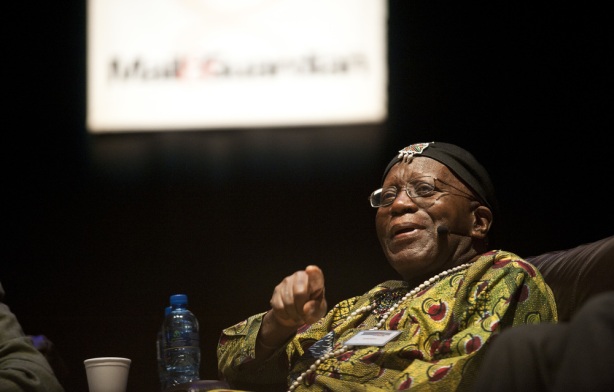POET’S PROFILE

I had to review this poem by Mtshali because it has come up, along with others, as most-searched and leading to traffic on this blog. I find also that Southern African poets are probably the most read along with Nigerian poets and many enquiries to my blog have brought up same names and demographics. I intend to obey that wind and review more Nigerian and Southern African poetry but also, I will wander into the hinterlands for poems from Sudan, Ethiopia, the Arab African nations, Francophone and Lusophone Africa for what goes through their literary minds as well.
Oswald Mbuyiseni Mtshali is a South African poet who was born in Vryheid, Natal. After his early education, he left for Johannesburg with a dream to pursue further schooling in the University of Witwatersrand but he fell victim to the endemic workings of the apartheid era in which he was born. He did not gain admission and resigned to live in Soweto, a Bantu suburb of Johannesburg, about which he writes this poem. His dreams took him to an M.A in the United States and lectureship at Pace College, a U.S-funded model College in Soweto.
NIGHTFALL IN SOWETO
Nightfall comes like
a dreaded disease
seeping through the pores
of a healthy body
and ravaging it beyond repairA murderer’s hand,
lurking in the shadows,
clasping the dagger,
strikes down the helpless victim.I am the victim.
I am slaughtered
every night in the streets.
I am cornered by the fear
gnawing at my timid heart;
in my helplessness I languish.Man has ceased to be man
Man has become beast
Man has become prey.I am the prey;
I am the quarry to be run down
by the marauding beast
let loose by cruel nightfall
from his cage of death.Where is my refuge?
Where am I safe?
Not in my matchbox house
Where I barricade myself against nightfall.I tremble at his crunching footsteps,
I quake at his deafening knock at the door.
“Open up!” he barks like a rabid dog
thirsty for my blood.Nightfall! Nightfall!
You are my mortal enemy.
But why were you ever created?
Why can’t it be daytime?
Daytime forever more?
REVIEW
This poem sees Mtshali going almost emotional in his protest against the treatment of black South Africans under the Soweto night sky.
Soweto is an acronym for South-West Townships and is located in that bearing from Johannesburg. It hosts some of the largest populations of slum-dwellers in the world and is the setting for Mtshali’s poem. In review, nightfall comes like “a dreaded disease” (line 2) that ravages beyond repair. (inf. line 5). Obviously, the poet sees a worry about the fall of night and we are yet to find out why so.
But he does not make us wonder long!! In the next stanza (how good is it to say “strophe” here?), Mtshali uses four lines to graphically describe the cold murder of the helpless victim (line 9). Note that he uses the definite article “the” to describe the victim, indicative of the fact that these deaths are commonplace. Then we begin to see why nightfall calls his wrath.
The poet puts himself in the place of all the murdered, calling himself the victim and the slaughtered (lines 10-11). “Slaughter” gives us a feel of the animalistic way in which human life is treated and brings more attention to the worth of the life of the black man hiding in the Soweto nightfall. He goes on to say (lines 12-15) that as the representative of all the victims, he fears every night in the streets, knowing that his death cannot be far off. “Gnawing” in line 14 paints the picture of something that is slowly being bitten off in small chunks and the comparison is this: for all the many black men- estimated to be more than a million- living in the shacks of Soweto, taking one or two lives a night is a slow, albeit sure way of killing the population off. Mtshali is talking about the apartheid era, certainly, and we can only deduce the murderers to be the law-officers whose duty it was to enforce the tyrannical decrees of the regime during the times.
Lines 16-18 sum up the whole poem. “Man has ceased to be man” shows that either way, the human race has changed. For the good? No. For in the ensuing lines Mtshali likens Man to a beast and then to a prey. This Man has become the hunter and the hunted.
The law-officers never took men in broad daylight and killed them. They came marauding in the night as if unleashed by night itself from its cage of death. This is pathetic. And why night is a conspirator in this heinous crime earns it the accolade “Cruel” in line 22.
It was a hopeless situation then and houses were as impotent to keep one safe as it was to just stand outside in the night and get shot. A desperate “barricade” (line 27) against nightfall was useless even as the offenders march straight to doorsteps and order men out to their death. Hounds and mad dogs “thirsty for my blood” (line 31).
So the curses of Nightfall continue as Mtshali signs out embittered. If the night will bring death to the black oppressed man, then it was a sworn mortal enemy (line 33) and in the conclusion of his rant, our poet wishes that we had “Daytime forever more”.
The irony of the poem is that Nightfall refuses to bring the rest that is deserved and common. A long poem and review too but as I have often said, it is with reading the sacred lines of Africa’s great poets that the history and tomorrow of this great continent can be appreciated.



